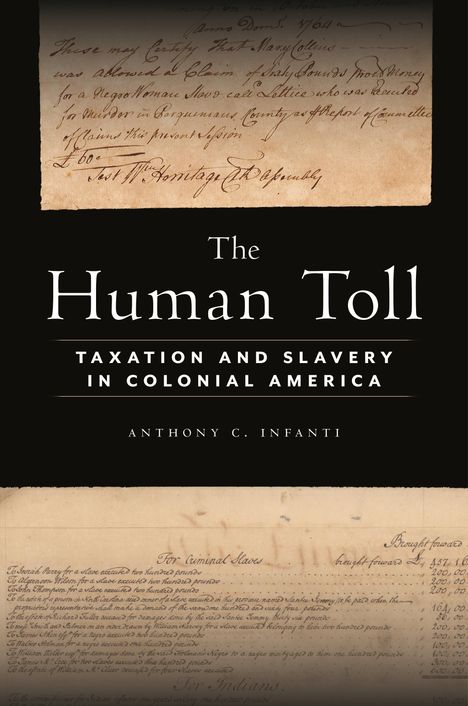Anthony C Infanti: The Human Toll, Gebunden
The Human Toll
Buch
- Taxation and Slavery in Colonial America
lieferbar innerhalb 1-2 Wochen
(soweit verfügbar beim Lieferanten)
(soweit verfügbar beim Lieferanten)
Aktueller Preis: EUR 57,46
Versandkosten
(United States of America): EUR 19,90
- Verlag:
- New York University Press, 05/2025
- Einband:
- Gebunden
- Sprache:
- Englisch
- ISBN-13:
- 9781479829866
- Artikelnummer:
- 12040412
- Umfang:
- 328 Seiten
- Gewicht:
- 658 g
- Maße:
- 229 x 152 mm
- Stärke:
- 22 mm
- Erscheinungstermin:
- 13.5.2025
- Hinweis
-
Achtung: Artikel ist nicht in deutscher Sprache!
Klappentext
"The Human Toll fills a gap in the historical record by documenting how the thirteen colonies that later became the United States of America deployed the power of taxation to support, promote, and perpetuate the institution of slavery"--

Anthony C Infanti
The Human Toll
Aktueller Preis: EUR 57,46

